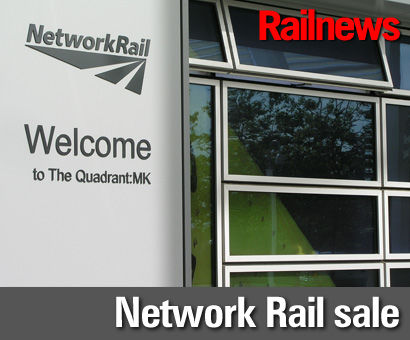THE Adam Smith Institute has renewed its campaign for more railway privatisation in a new report which suggests that almost half of Network Rail's assets should be sold to the private sector, allegedly raising £8 billion to reduce NR's public sector debt of some £41 billion.
The report, published by the 'free market' Institute, has been written by investment analyst Nigel Hawkins, a senior fellow of the Institute, but he is being accused of regarding railways 'through a narrow set of blinkers'.
In 'Network Fail: getting UK rail back on track', he advocates that Network Rail should be 'progressively sold down' and HS2 scrapped in favour of more investment in the existing West Coast line.
Other measures include more open access and the handover of some smaller lines from Network Rail to local ownership, with the eventual aim of creating vertically integrated regional railway companies forming a 'railway equivalent' of National Grid, which is now
worth over £40 billion.
In addition, he says the Department for Transport and the ORR should 'crack down hard' on underperforming rail franchise holders. The report continues: "Substantial fines could be levied, senior management changes demanded or the ultimate sanction -- franchise withdrawal -- could be imposed."
The report explains: "Network Rail has been widely criticised for its lack of accountability to the public, a major defect of the pre-privatisation decision to split the ownership of the rail network from the TOCs.
"If vertical integration had been undertaken, this shortcoming would be far less apparent since a vertically-integrated railway company would be more directly accountable to its customers. However, to re-design a vertically-integrated railway system virtually from scratch would be immensely complicated and expensive.
"However, where realistic opportunities to introduce vertical integration do arise, as in the case of Merseyrail, they should be carefully considered."
Reaction from the railway industry and government today has been unsympathetic.
Network Rail said: "Network Rail debt is NOT a measure of Network Rail’s performance. It is a measure of the investment that Government has put into improving Britain's railway, a railway that is the fastest growing, the safest and one of the most reliable railways in Europe. Network Rail is not funded to pay off the debt."
The ORR declined to comment, but the Department for Transport said: “Action to sort out Britain's railways is clearly a priority, which is why this government is committed to investing in rail infrastructure. HS2 will have a transformational effect, increasing capacity and helping to rebalance the economy. We are also committed to electrification on routes where it will bring benefits to passengers.
"We are spending £13 billion on transport in the North by 2020, which will see passengers get more trains, more seats and more frequent rail services.
"Network Rail is undergoing a transformation to make our railways more reliable and provide better value for money.”
ASLEF general secretary Mick Whelan described his reaction as 'incredulous'. He continued: ‘We’re stunned that the Adam Smith Institute, given the level of back door subsidy for track access to the current train operating companies, could even imagine the part privatisation of Network Rail. The Conservative government’s current system of subsidising the TOCs by sleight-of-hand would have to cease and the true level of public subsidy would be revealed.
‘We know that Network Rail isn’t perfect. Its governance needs to be improved and it needs to understand its asset base better but every rail professional knows it’s the only show in town for the future of Britain’s railway."
Rail Delivery Group chief executive Paul Plummer said: “The report’s comments on HS2 are somewhat surprising given HS2’s crucial role in ensuring the country has the railway it needs in the long term.
“The planned devolution to NR routes will create a stronger local focus on the needs of train operators, and thus on passengers and freight customers. It will help to drive efficiency and service quality by making routes more responsive to local situations, while protecting the benefits of a single railway that works seamlessly for passengers. Devolution also enables different models for operating rail infrastructure in different parts of the country with the potential for greater competition between train operators where this makes sense.
“Where there is less room for competition, devolution allows closer collaboration between an NR route and the lead operator in that area while retaining transparency over the costs.
“However we organise ourselves we need teams managed effectively, working together towards the same objectives, and with access to finance for much needed investment.”
The Campaign for Better Transport said the author had ignored the benefits of rail. CBT chief executive Stephen Joseph commented: "This report ignores all the wider costs of road transport -- air pollution, road deaths and injuries, increased obesity, climate change as well as congestion -- and so examines railways through a narrow set of blinkers. The solutions they propose will add cost and complexity to the railways, increasing overcrowding and making ticketing and fares even more of a nightmare than they are at present.
"We were pleased that the Shaw review into the future funding and structure of Network Rail recommended no fragmentation or privatisation and recognised that what's needed is longer term planning and greater devolution, which would make the railways much more responsive to the communities they serve, while helping simplify the sometimes confused relationship between Network Rail, the Department for Transport and the regulator."


